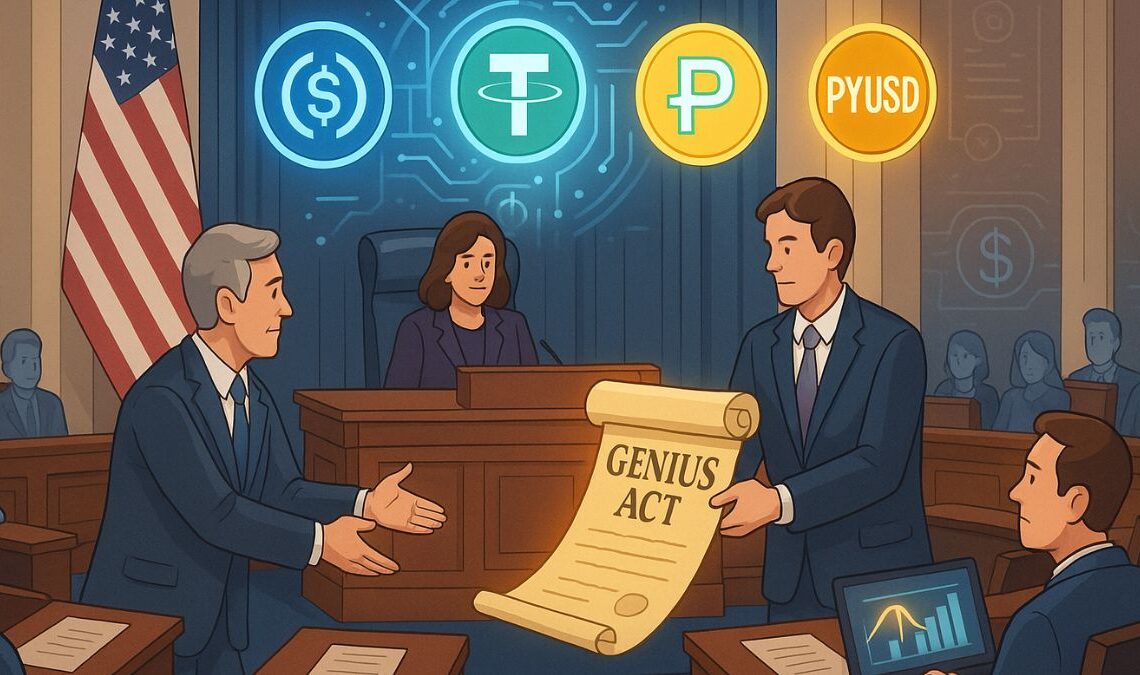The U.S. Senate has officially passed the Genius Stablecoin Bill, marking a pivotal milestone in the regulatory landscape for crypto in 2025. With bipartisan support and momentum building since the House discussions in May, the bill now heads to the President’s desk—potentially ushering in the first comprehensive federal framework for stablecoins.
The news follows a cloture vote held late Wednesday, where senators overwhelmingly backed the bill’s advancement, confirming strong cross-party alignment on the issue of digital asset regulation. The final Senate vote confirms the U.S. is on track to lead in global crypto policy—especially in the stablecoin sector.
What’s Inside the Genius Stablecoin Bill?
As previously reported, the Genius Act lays out clear definitions and operational rules for USD-pegged stablecoins. Some key elements include:
- Mandatory 1:1 reserve backing for all fiat-backed stablecoins
- Strict auditing and disclosure requirements
- New licensing regimes for issuers (divided between federal and state regulators)
- Provisions to block algorithmic stablecoins unless approved under pilot frameworks
The legislation was co-sponsored by high-profile senators including J.D. Vance and Kirsten Gillibrand, with Vice President Vance previously stating the bill would ensure “financial sovereignty and dollar competitiveness in the digital age.”
A New Era of Compliance – or Centralization?
While the bill’s passage has been largely applauded by institutions and traditional finance players, not everyone is celebrating. Some in the DeFi community argue that the act favors centralized issuers and may limit innovation by creating high barriers to entry.
Still, the Genius Act provides much-needed clarity, especially after a decade of fragmented crypto enforcement in the U.S. market. As noted in our previous analysis, regulation was always a question of when, not if—and the Genius Act may be the clean slate the industry needs to mature responsibly.
Final Thoughts: What the Genius Act Means for Crypto in 2025
With the Senate’s approval of the Genius Stablecoin Bill, the U.S. takes a decisive step toward crypto integration at the federal level. For investors, this means stablecoins may soon become more secure, regulated, and widely accepted—especially among banks and financial institutions.The Genius Act could also set the stage for future crypto legislation, potentially covering areas like DeFi, staking, and DAOs. As the crypto world continues to evolve, 2025 is shaping up to be a regulatory turning point—and stablecoins are just the beginning.










